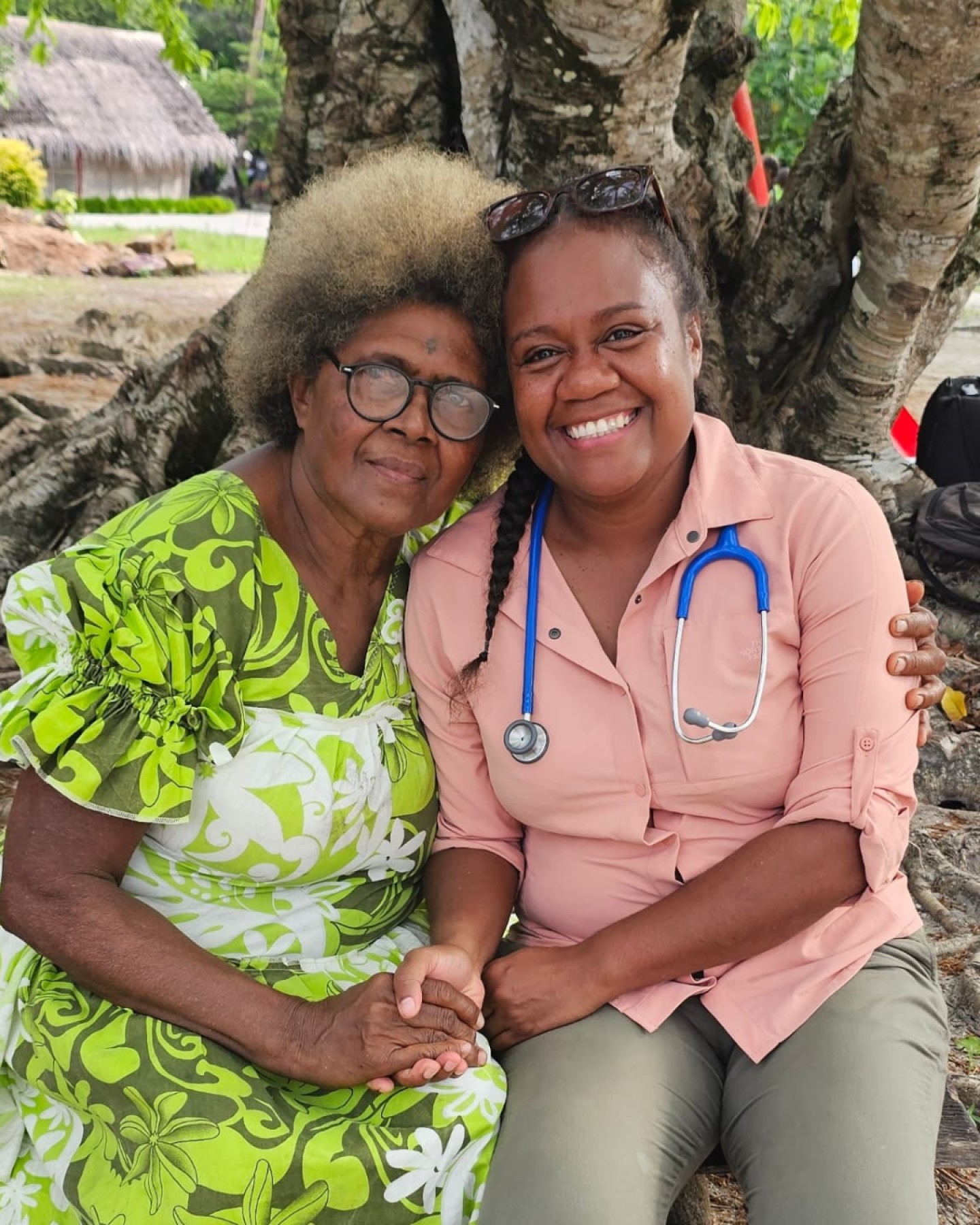This is my story of the journey of languages that I know and have been encountering since I was a child. Let me first say that I am very proud of my mixed parentage but as a child growing up in both PNG and Vanuatu, I often felt a bit lost in terms of my cultural identity as well as my knowledge of language.
My siblings and I were all born in PNG and for the first eight years of my life we moved around a lot between PNG, Vanuatu and New Zealand. Because of that, we grew up speaking English at home but the other languages I was exposed to were my mother’s language from the Rigo District in PNG, Tok pisin, and Motu. As many are aware, PNG is home to more than 800 languages. My siblings and I understood our mother’s language, tokpisin and some motu but we were not completely proficient in the three different languages.
It was only when we had finally moved back to Vanuatu in 1993 that we finally learnt bislama and my father’s local Ambaen dialect. Most of my time in high school was spent in boarding school which was when I started speaking fluently in Bislama amongst my peers. Although we were not allowed to speak Bislama in school, as a teenager, I wanted to fit in and learn the language. Students often joked that I spoke Bislama with an English accent and one does not forget such experiences. But I went on to learn the language and of course speak it fluently now.
In Vanuatu, the three official languages are English, French and Bislama and so it was mandatory to learn French in first four years of high school if you attended an English-speaking school. When I studied medicine in Fiji for six years, we learnt to speak conversational Fijian or Hindi to communicate with patients. Studying abroad made me learn a new language but spending so much time away from Vanuatu, meant that I did not get the opportunity to learn my dad’s dialect fluently.
My post-graduate studies were in PNG, so I was able to brush up on tokpisin and motu again as well as my mum’s rigo dialect. My relatives were surprised that I still understood and was able to communicate although I had not been back to PNG for about 15 years. I believe this was because my late mum had spoken to my siblings and I since we were children. Hence, better to learn a native language at an early age.
Working now as a paediatrician, ward rounds and family conferences are carried out in Bislama, however translating medical terms into Bislama can be challenging, but one that I ensure must be done well and is crucial to helping communicate with my patient’s family regarding my patient’s condition. I have since embraced my mixed parentage and proud of the different languages I have been surrounded by and learnt along the way.
During a church youth conference a few years ago, one question brought up concerning why many young people these days only speak Bislama and not their local dialect. I, given my own experiences, sided with the youth and deduced that because of mixed marriages, the urban drift, families have chosen to move for a better education and life, some of these knowledges get lost along the way. It happens and is a part of life. However, we concluded it was never too late to learn. We encouraged the elders that they should not scold or judge the younger ones if they did not speak the dialect, but instead continue to speak and teach every day. The younger generation will have to meet them half way – be humble and able to accept corrections during these times. This I believe was not just for language, but for the knowledge of custom and tradition to be passed from one generation to the next.
This year’s theme on climate change is an important issue as it significantly affects human health, both directly and indirectly. I still vividly remember in 2023 when we were hit by two category 5 cyclones in a span of three days. I was on-call and anxiously praying for safety of our sick children and for our families. That for me, was yet another harsh reminder of the reality of climate change. Stronger cyclones, unpredictable weather patterns, rising sea levels are already affecting our communities, food security and fresh water supplies. These changes threaten not just our environment, but our way of life, culture and future generations. We must act urgently to protect life-human, plant and marine. This means caring for our oceans, using resources wisely, building resilient communities and standing together for climate justice.
Looking after life is our duty – for our children and the generation to come. This is also true for our languages and the knowledge of history, culture and traditions. One of many reasons why I love working with children and their families is because with them, we can help make the change we want to see for our future.
HAPPY BISLAMA WEEK!

